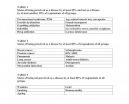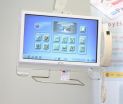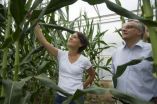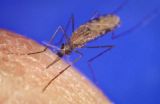(Press-News.org) "Understanding peoples' attitudes about whether states of being should be considered diseases can inform social discourse regarding a number of contentious social and health public policy issues," says Kari Tikkinen, MD, PhD, corresponding author of the FIND Survey.
All Finns think that myocardial infarction, breast cancer, malaria and pneumonia are diseases. People are equally unanimous that wrinkles, grief and homosexuality are not diseases. What about drug addiction or absence of sexual desire? Or erectile dysfunction, infertility or obesity?
"The word disease seems to be as difficult to define as beauty, truth or love, although the concept of disease lies at the heart of medicine," Tikkinen says.
Currently on leave from the Helsinki University Central Hospital, Tikkinen works as a visiting research fellow at McMaster University in Hamilton, Ontario, Canada.
The FIND Survey examined, across a wide range of conditions, which should be classified as a disease. The respondents included four relevant stakeholders: laypeople, doctors, nurses and legislators.
Perceptions of disease were surveyed using a questionnaire that listed 60 states of being related to health and well-being, from breast cancer and pneumonia to burnout, grief and wrinkles. Using a 5-point Likert-scale ranging from "strongly disagree" to "strongly agree", the respondents were asked to evaluate whether states of being should be considered diseases and be funded through public revenue.
The survey was sent to 6,200 Finns: 1,500 doctors, 1,500 nurses, 3,000 laypeople and the 200 members of the Parliament of Finland. The doctors and nurses were randomly selected from the databases of their professional organisations and the laypeople from the Finnish Population Register. A total of 3,280 people responded to the survey (53%).
The 60 states of being presented in this survey included 12 that at least 80 percent of the respondents considered to be diseases. Five states were considered not to be diseases by at least 80 percent of the respondents. The responses to the remainder of the states showed large disagreement whether they should be considered, or not, diseases.
Public funding only for the treatment of "real" diseases
Doctors were the most inclined to consider states of being diseases. Laypeople were the least inclined, and nurses and legislators were in between. However, the differences between the groups were not large, and were very small in comparison to the disagreement within each group.
In all groups, willingness to pay for treatment from public funds was very strongly correlated with the perception of disease (that is, whether respondents regarded a particular state of being as a disease).
"The substantial disagreement we found in classifying of states of being as diseases, and the parallel disagreement regarding the legitimacy of public funding for those that warrant treatment provides insight into the attitudes underlying a number of current high profile social debates. The solutions and management of drug addictions, for example, may vary greatly depending on whether addiction is seen as a disease or as a moral failing." Tikkinen says.
INFORMATION:
Grief is not a disease, but cancer is -- what about erectile dysfunction?
2012-12-03
ELSE PRESS RELEASES FROM THIS DATE:
Researchers confirm the 'Pinocchio Effect': When you lie, your nose temperature raises
2012-12-03
The University of Granada researchers are pioneers in the application of thermography to the field Psychology. Thermography is a technique based on determining body temperature.
When a person lies they suffer a "Pinocchio effect", which is an increase in the temperature around the nose and in the orbital muscle in the inner corner of the eye. In addition, when we perform a considerable mental effort our face temperature drops and when we have an anxiety attack our face temperature raises. These are some of the conclusions drawn in this pioneer study conducted at the University ...
BGI's ICG-7 and Bio-IT APAC provides updates on the latest genomics research to advance life science
2012-12-03
December 3, 2012, Hong Kong and Shenzhen, China – The 7th International Conference on Genomics and Bio-IT APAC 2012, organized by BGI, the world's largest genomics organization, successfully concluded with numerous updates on on-going research applying today's latest sequencing and bioinformatics technologies to a new paradigm of human diseases and to enhancing global agriculture development. The three-day conference, held in Hong Kong, also brought new insights into Bio-cloud and big data management. More than 300 participants attended this top-grade international conference.
The ...
Heart-warming memories: Nostalgia can make you feel warmer
2012-12-03
As the nights draw in and the temperature begins to drop, many of us will be thinking of ways to warm up on the dark winter nights. However, few would think that remembering days gone by would be an effective way of keeping warm.
But research from the University of Southampton has shown that feeling nostalgic can make us feel warmer.
The study, published in the journal Emotion, investigated the effects of nostalgic feelings on reaction to cold and the perception of warmth. The volunteers, from universities in China and the Netherlands, took part in one of five studies. ...
Genes link growth in the womb with adult metabolism and disease
2012-12-03
Researchers have identified four new genetic regions that influence birth weight, providing further evidence that genes as well as maternal nutrition are important for growth in the womb. Three of the regions are also linked to adult metabolism, helping to explain why smaller babies have higher rates of chronic diseases later in life.
It has been known for some time that babies born with a lower birth weight are at higher risk of chronic diseases such as type 2 diabetes and cardiovascular disease. Three genetic regions have already been identified that influence birth ...
An innovation will attach patients' electronic medical record to the foot of their hospital bed
2012-12-03
This press release is available in Spanish.
Information and Communication Technologies (ICT) present tremendous potential in the field of healthcare, according to the researchers. "ICTs are going to contribute to a change in focus in aid and health services," comments Jesús Espinosa, CEO of IonIDE Telematics. According to accreditation and standardization associations, Spain is a leader in the management of clinical processes, because it has the greatest number of hospitals that have adopted electronic medical record (EMR). This computerized registry of patients' social, ...
Corn: Many active genes - high yield
2012-12-03
Hybrid plants provide much higher yield than their homozygous parents. Plant breeders have known this for more than 100 years and used this effect called heterosis for richer harvests. Until now, science has puzzled over the molecular processes underlying this phenomenon. Researchers at the University of Bonn and partners from Tübingen and the USA have now decoded one possible mechanism in corn roots. More genes are active in hybrid plants than in their homozygous parents. This might increase growth and yield of the corn plants. The results are published in the renowned ...
Have Venusian volcanoes been caught in the act?
2012-12-03
Six years of observations by ESA's Venus Express have shown large changes in the sulphur dioxide content of the planet's atmosphere, and one intriguing possible explanation is volcanic eruptions.
The thick atmosphere of Venus contains over a million times as much sulphur dioxide as Earth's, where almost all of the pungent, toxic gas is generated by volcanic activity.
Most of the sulphur dioxide on Venus is hidden below the planet's dense upper cloud deck, because the gas is readily destroyed by sunlight.
That means any sulphur dioxide detected in Venus' upper atmosphere ...
Malaria parasite's masquerade ball could be coming to an end
2012-12-03
More than a million people die each year of malaria caused by different strains of the Plasmodium parasite transmitted by the Anopheles mosquito. The medical world has yet to find an effective vaccine against the deadly parasite, which mainly affects pregnant women and children under the age of five. By figuring out how the most dangerous strain evades the watchful eye of the immune system, researchers from the Hebrew University of Jerusalem have now paved the way for the development of new approaches to cure this acute infection.
Upon entering the bloodstream, the Plasmodium ...
BU, VA study describes 68 CTE cases in veterans, high school, college and pro athletes
2012-12-03
(BOSTON) – A study done by investigators at the Boston University Center for the Study of Traumatic Encephalopathy (CSTE) and the Veterans Affairs Boston Healthcare System, in collaboration with the Sports Legacy Institute (SLI), describes 68 cases of chronic traumatic encephalopathy (CTE) among deceased athletes and military veterans whose brain and spinal cords were donated to the VA CSTE Brain Bank. Of the 68 cases, 34 were former professional football players, nine had played only college football, and six had played only high school football. The results, which will ...
New York's Medical Schools urge Congress to preserve NIH funding for scientific research
2012-12-03
The Associated Medical Schools of New York (AMSNY) today directed a letter to the New York State Congressional
Delegation calling on them to reject a nearly 10-percent cut to the National Institutes of Health (NIH), Medicare and
Title VII health professions programs, that will take effect January 2, 2013.
"In order to meet the health challenges of an aging and increasingly diverse population, continue to foster the types
of innovation that will drive our regional economy, and remain a vibrant force in the global economy, we need to
invest more in medical research ...





